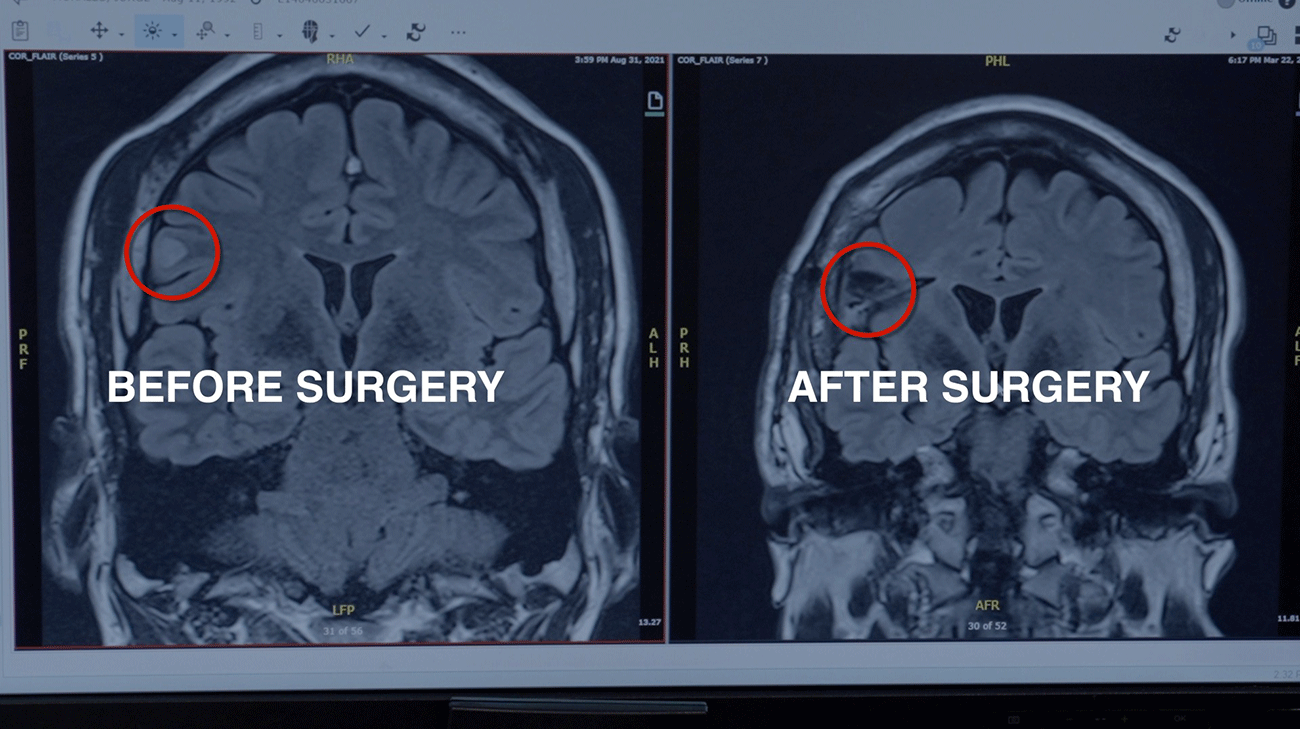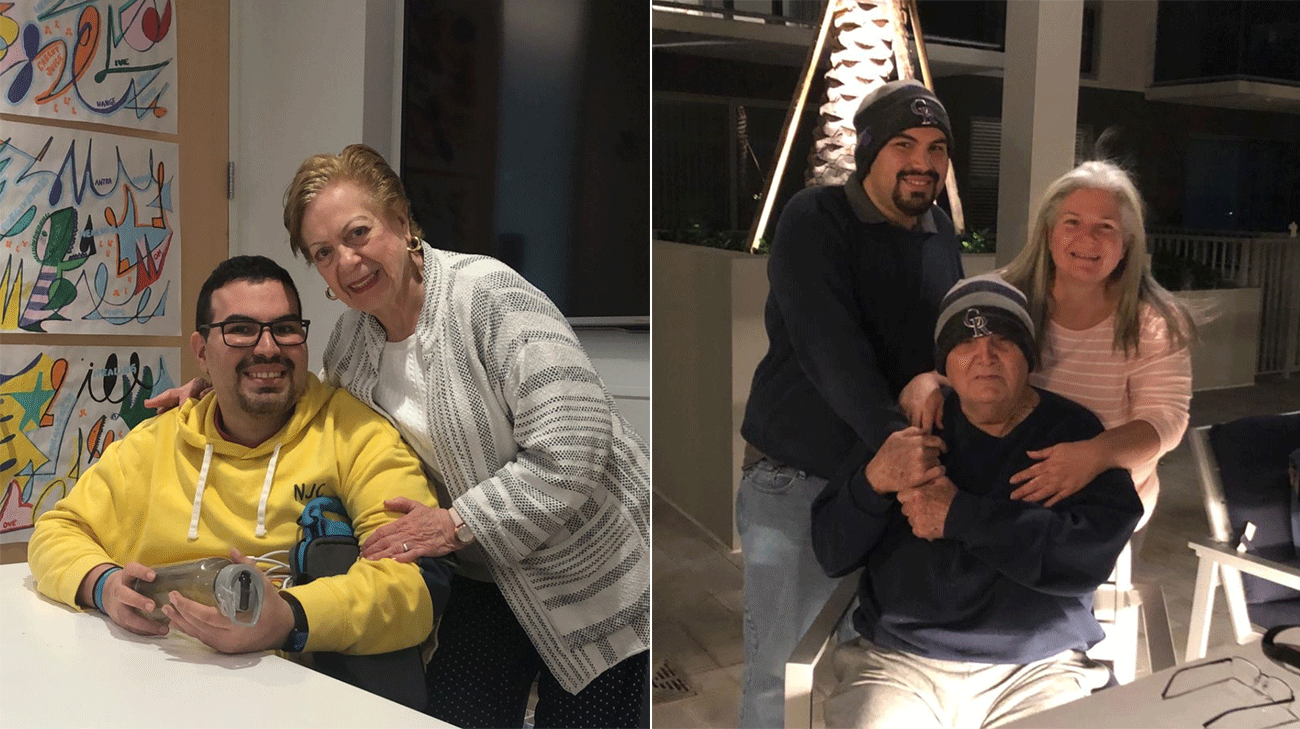In 2017, after she saw her son have a seizure for the first time, Airin Rodriguez had a hard time sleeping at night.
Jorge, 31, lives with Airin and is autistic. He is an accomplished artist who loves painting and drawing and has had a gallery exhibit in Venezuela, where he and his family are from. “He expresses himself through his art,” says Airin.

Airin started to notice more seizures and worried for Jorge. “I had all this anxiety and I wondered what would happen if I was not there for the next seizure,” she says. She took him to a neurologist and he was put on medication, which was adjusted as needed.
Five years later, a bout with stomach pain led Airin to take Jorge to the emergency room at Cleveland Clinic Weston Hospital. While there, Airin says she expressed her concerns about Jorge’s seizures to one of the nurses. He was still having them once or twice a month and was now on multiple epilepsy medications.
After further evaluation, Jorge was admitted to the epilepsy unit at Weston Hospital for five days in order to study his epilepsy, by Samer Riaz, DO, an epileptologist at Cleveland Clinic in Florida Department of Neurology. Jorge underwent a detailed evaluation including an electroencephalogram (EEG), an ictal SPECT (single-photon emission computed tomography) scan, an epilepsy protocol MRI, and a positron emission tomography (PET) scan. His case was then discussed at a multidisciplinary epilepsy conference. Dr. Riaz and the team concluded that the seizures were originating in the right frontal lobe of Jorge’s brain. On MRI, a lesion was present in the right frontal lobe consistent of abnormal and disorganized array of brain cells known as a focal cortical dysplasia (FCD). All of the testing and data was concordant with the epilepsy arising from the FCD. It is one of the most common causes of epilepsy and had likely been there since birth.
Based on the testing and imaging, Dr. Riaz and Neurosurgeon Badih Adada, MD, Chair of the Cleveland Clinic in Florida Neurological Institute, felt confident they could safely operate on Jorge to remove the lesion.
Airin says that when she learned Jorge was a candidate for surgery, she was very happy.
“Whatever was possible to fix this problem I was willing to do,” she says. “The doctors made me feel comfortable and confident.”
In August of 2022, Jorge underwent the surgery in which Dr. Adada removed the lesion in the area of the brain causing the seizures. Dr. Adada was guided by a state-of-the-art procedure called an electrocorticography (ECoG). ECoG is a specialized monitoring tool used by both the surgeon and the epileptologist during the surgery that maps the epileptic region of the brain.

Jorge has not had a seizure in the past year and a half since the procedure. He is on a minimum dosage of medications now, and Dr. Riaz is working on tapering them off completely.
“Jorge is seizure-free and I am hopeful he will remain that way,” Dr. Riaz says of his prognosis. “Patients like him who undergo resection of a known FCD usually do very well.”
Dr. Adada says he understands the fear and hesitancy that so many people have about pursuing epilepsy surgery as a treatment option.
“I would want them to know that the risk of those surgeries now is much lower than the risk of not having them,” he says. “Having the seizures could pose a much higher risk to life and neurologic function.”

Other than the lack of seizures, Airin says Jorge is the same after surgery as before. He continues to paint, draw and has even begun to shadow employees at his mother’s job, where he is taught to help put together wooden cabinets; something his mom could have never imagined him having the patience to do pre-surgery.
“He is the center of our house,” Airin says. “I’m so happy now I can sleep knowing he is okay. I knew I was putting my son into good hands.”
Photos courtesy of Airin Rodriguez.
Related Institutes: Neurological Institute

